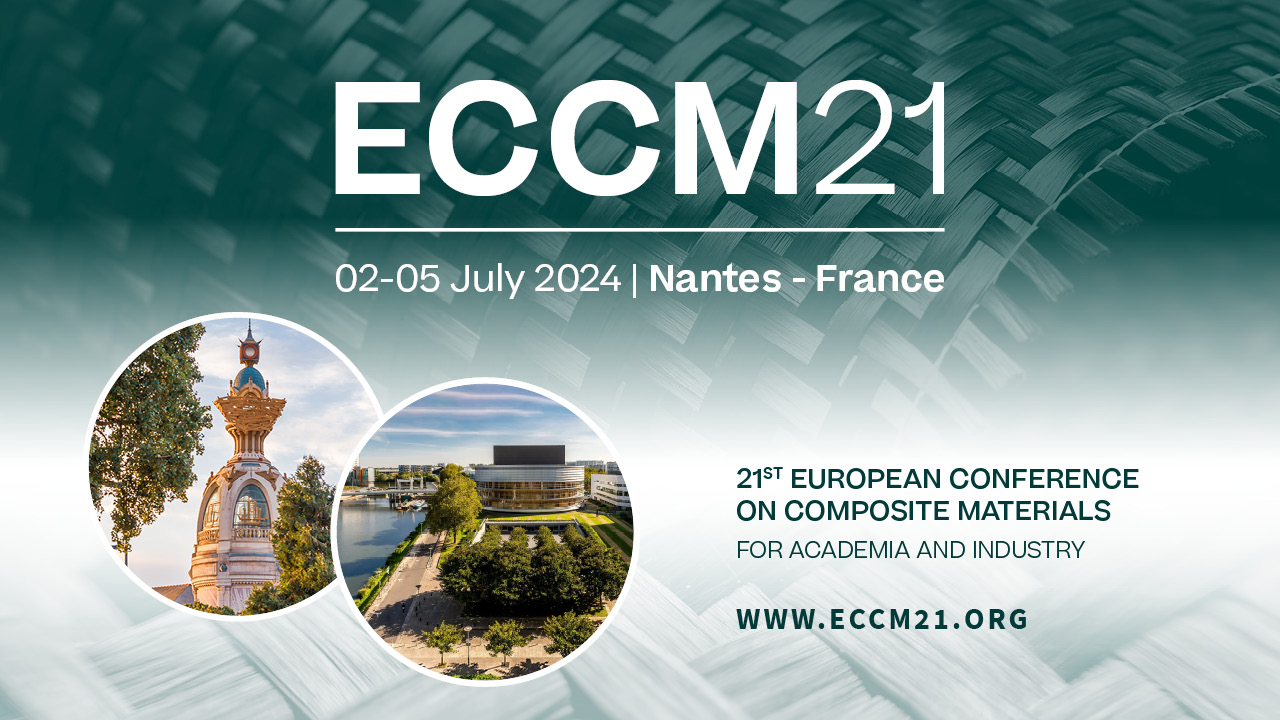LIFE CYCLE ASSESSMENT AND LIFE CYCLE COST ANALYSIS OF THE RECYCLING OF PROCESS OF AEROSPACE COMPOSITE MATERIALS
Topic(s) : Life cycle performance
Co-authors :
Alexia KOUTRAKOU (FRANCE), Maria KOSARLI , Orsa BOURA (FRANCE), Gaylord BOOTO , Sotirios GRAMMATIKOS (NORWAY)Abstract :
Composite materials have become increasingly popular due to their unique properties and versatility. Polymer matrix composites containing continuous carbon fibers as reinforcement are the dominant advanced lightweight materials for high-performance structural applications such as aerospace. Today, end-of-life composite materials are still largely being deposited directly in landfills. However, current recycling solutions seem to be very promising specifically in terms of their environmental impact. Life cycle assessment (LCA) is a vital tool that provides a comprehensive and holistic evaluation of the environmental impact of a process. Additionally, Life Cycle Cost Analysis (LCC) can provide crucial information about the economic performance of a process or service. In this work, we will present a novel LCA and LCC framework related to the recycling of Carbon Fiber Reinforced Polymer (CFRP) composite materials. Our specific scenario studies the environmental and economic performance/benefits/advantages of the mechanical and chemical recycling of CFRP composite waste, stemming from the aerospace sector, and its recycling benefits; economic and environmental in the reuse of r-CFRPs. The OpenLCA software is used, while the Life Cycle Information (LCI) built for the scenarios consist of mainly primary data resulting from literature and inherently calculated data. Results considering the chemical (solvolysis) and mechanical recycling processes; although the two may range in production from lab-scale operations to commercial ones, indicate to be in favour of mechanical recycling process in matters of GHG (green house gasses) and acidification impact factors. Nevertheless, both mechanical and chemical recycling processes have a positive impact both on the environment and the costs when compared with landfilling.
The project GREEN-COMP entitled “Polish-Norwegian Sustainable Research and Innovation Ecosystem for Improving Composite’s Waste Management and Recyclability” received funding within the Bilateral Initiatives between Poland and Norway in the area of Green Transition under the EEA and Norway Grants.
The project GREEN-COMP entitled “Polish-Norwegian Sustainable Research and Innovation Ecosystem for Improving Composite’s Waste Management and Recyclability” received funding within the Bilateral Initiatives between Poland and Norway in the area of Green Transition under the EEA and Norway Grants.

